The Death of Death in the Death of Christ
500 in stock
| Weight | 0.82 lbs |
|---|---|
| Dimensions | 8.5 × 5.4 × 0.75 in |
| ISBN | 9781800404762 |
| Binding | Paperback |
| Topic | Atonement, Jesus Christ, Salvation |
| Original Pub Date | 1684 |
| Banner Pub Date | Jan 1, 1959 |
| Page Count | 384 |
| Format | Book |
Endorsement
‘It is safe to say that no comparable exposition of the work of redemption as planned and executed by the Triune Jehovah has ever been done since Owen published his in 1684. None has been needed. Owen’s interpretation of the texts is sure; his power of theological construction is superb; nothing that needs discussing is omitted, and no arguments for or against his position have been used since his day which he has not himself noted and dealt with. Owen’s work is a constructive broad-based biblical analysis of the heart of the gospel, and must be taken seriously as such. Nobody has a right to dismiss the doctrine of the limitedness of the atonement as a monstrosity of Calvinistic logic until he as refuted Owen’s proof that it is part of the uniform biblical presentation of redemption, clearly taught in plain text after plain text. And nobody has done that yet.’ — J.I. PACKER
Book Description
The Death of Death in the Death of Christ is a polemical work, designed to show, among other things, that the doctrine of universal redemption is unscriptural and destructive of the gospel. Those who see no need for doctrinal exactness and have no time for theological debates which show up divisions between Evangelicals may well regret its reappearance. Some may find the very sound of Owen’s thesis so shocking that they will refuse to read his book at all. But there are signs today of a new upsurge of interest in the theology of the Bible: a new readiness to test tradition, to search the Scriptures and to think through the faith. It is to those who share this readiness that Owen’s treatise is offered, in the belief that it will help us in one of the most urgent tasks facing Evangelical Christendom today-the recovery of the gospel.
Table of Contents Expand ↓
| Introductory Essay by J. I. Packer | ix | |
| Analysis of the book by J. I. Packer | xliii | |
| Epistle Dedicatory | li | |
| Two Attestations touching the ensuing Treatise | liii | |
| To the Reader | 1 | |
| BOOK I | ||
| I. | In general of the end of the death of Christ, as it in the Scripture proposed | 17 |
| II. | Of the nature of an end in general, and some distinctions about it | 22 |
| III. | Of the agent or chief author of the work of our redemption, and of the first thing distinctly ascribed to the person of the Father | 26 |
| IV. | Of those things which in the work of redemption are peculiarly ascribed to the person of the Son | 40 |
| V. | The peculiar actions of the Holy Spirit in this business | 45 |
| VI. | The means used by the fore-recounted agents in this work | 47 |
| VII. | Containing reasons to prove the oblation and intercession of Christ to be one entire means respecting the accomplishment of the same proposed end, and to have the same personal object | 51 |
| VIII. | Objections against the former proposal answered | 58 |
| BOOK II | ||
| I. | Some previous considerations to a more particular inquiry after the proper end and effect of the death of Christ | 77 |
| II. | Containing a removal of some mistakes and false assignations of the end of the death of Christ | 81 |
| III. | More particularly of the immediate end of the death of Christ, with the several ways whereby it is designed | 88 |
| IV. | Of the distinction of impetration and application – The use and abuse thereof; with the opinion of the adversaries upon the whole matter in controversy unfolded; and the question on both sides stated | 106 |
| V. | Of application and impetration | 121 |
| BOOK III | ||
| I. | Arguments against the universality of redemption – The two first; from the nature of the new covenant, and the dispensation thereof | 127 |
| II. | Containing three other arguments | 133 |
| III. | Containing two other arguments from the person Christ sustained in this business | 141 |
| IV. | Of sanctification, and of the cause of faith, and the procurement thereof by the death of Christ | 146 |
| V. | Being a continuance of arguments from the nature and description of the thing in hand; and first, of redemption | 158 |
| VI. | Of the nature of reconciliation, and the argument taken from thence | 162 |
| VII. | Of the nature of the satisfaction of Christ, with arguments from thence | 167 |
| VIII. | A digression, containing the substance of an occasional conference concerning the satisfaction of Christ | 179 |
| IX. | Being a second part of the former digression – Arguments to prove the satisfaction of Christ | 186 |
| X. | Of the merit of Christ, with arguments from thence | 196 |
| XI. | The last general argument | 201 |
| BOOK IV | ||
| I. | Things previously to be considered, to the solution of objections | 207 |
| II. | An entrance to the answer unto particular arguments | 236 |
| III. | An unfolding of the remaining texts of Scripture produced for the confirmation of the first general argument for universal redemption | 254 |
| IV. | Answer to the second general argument for the universality of redemption | 272 |
| V. | The last argument from Scripture answered | 294 |
| VI. | An answer to the twentieth chapter of the book entitled, “The Universality of God’s Free Grace,” etc., being a collection of all the arguments used by the author throughout the whole book to prove the universality of redemption | 306 |
| VII. | The removal of other remaining objections | 353 |
| Some few Testimonies of the Ancients | 373 |
You may also like…

The Works of John Owen
16 Volume Set
Description
Owen’s incomparable exposition of the work of redemption as planned and executed by the Triune God. Introductory essay by J. I. Packer. 440pp.
Related products
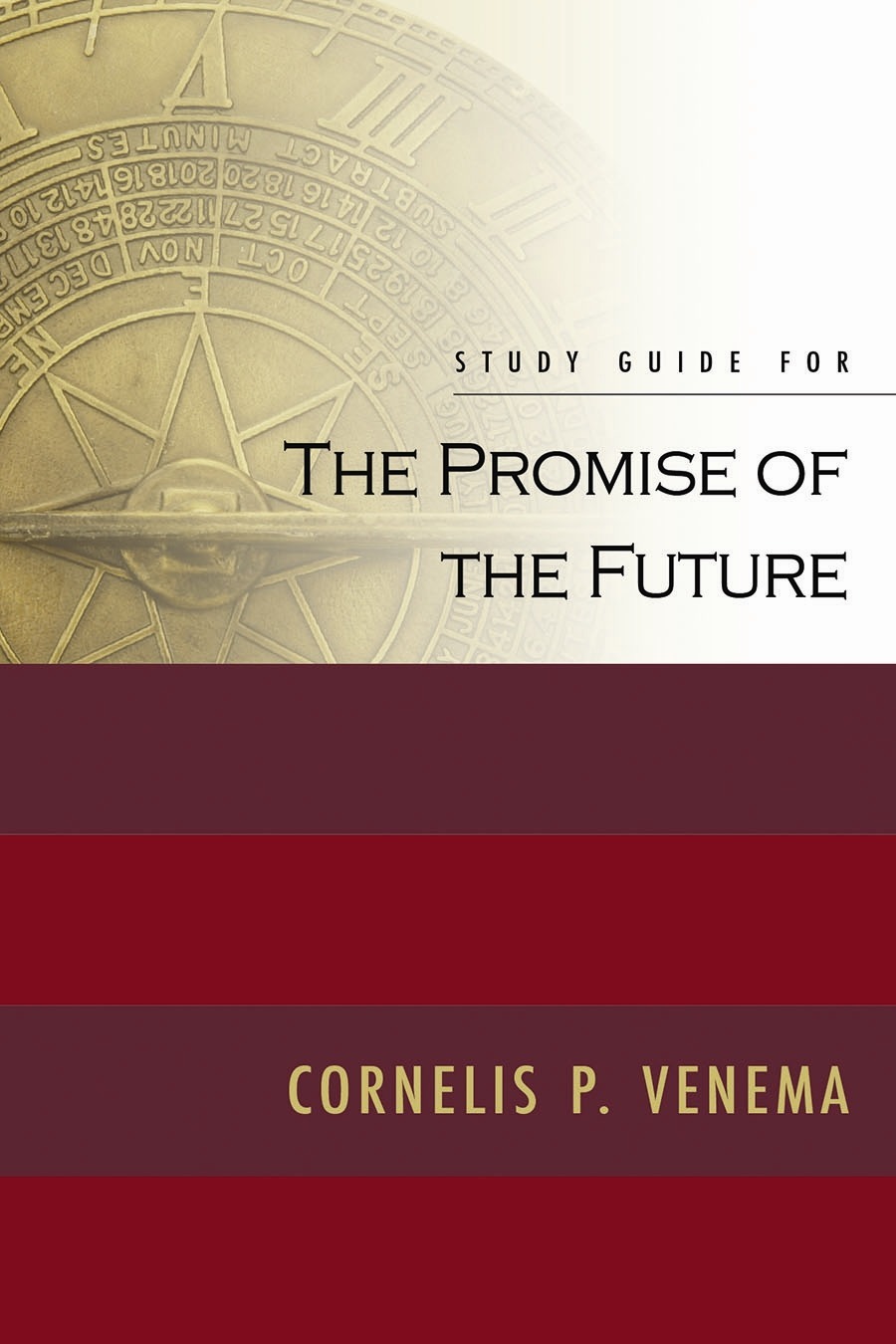
Description
Owen’s incomparable exposition of the work of redemption as planned and executed by the Triune God. Introductory essay by J. I. Packer. 440pp.

Description
Owen’s incomparable exposition of the work of redemption as planned and executed by the Triune God. Introductory essay by J. I. Packer. 440pp.
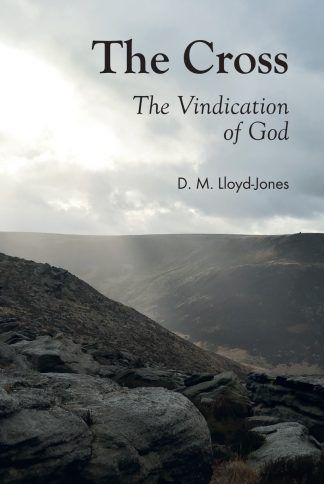
The Cross
The Vindication Of God
Description
Owen’s incomparable exposition of the work of redemption as planned and executed by the Triune God. Introductory essay by J. I. Packer. 440pp.


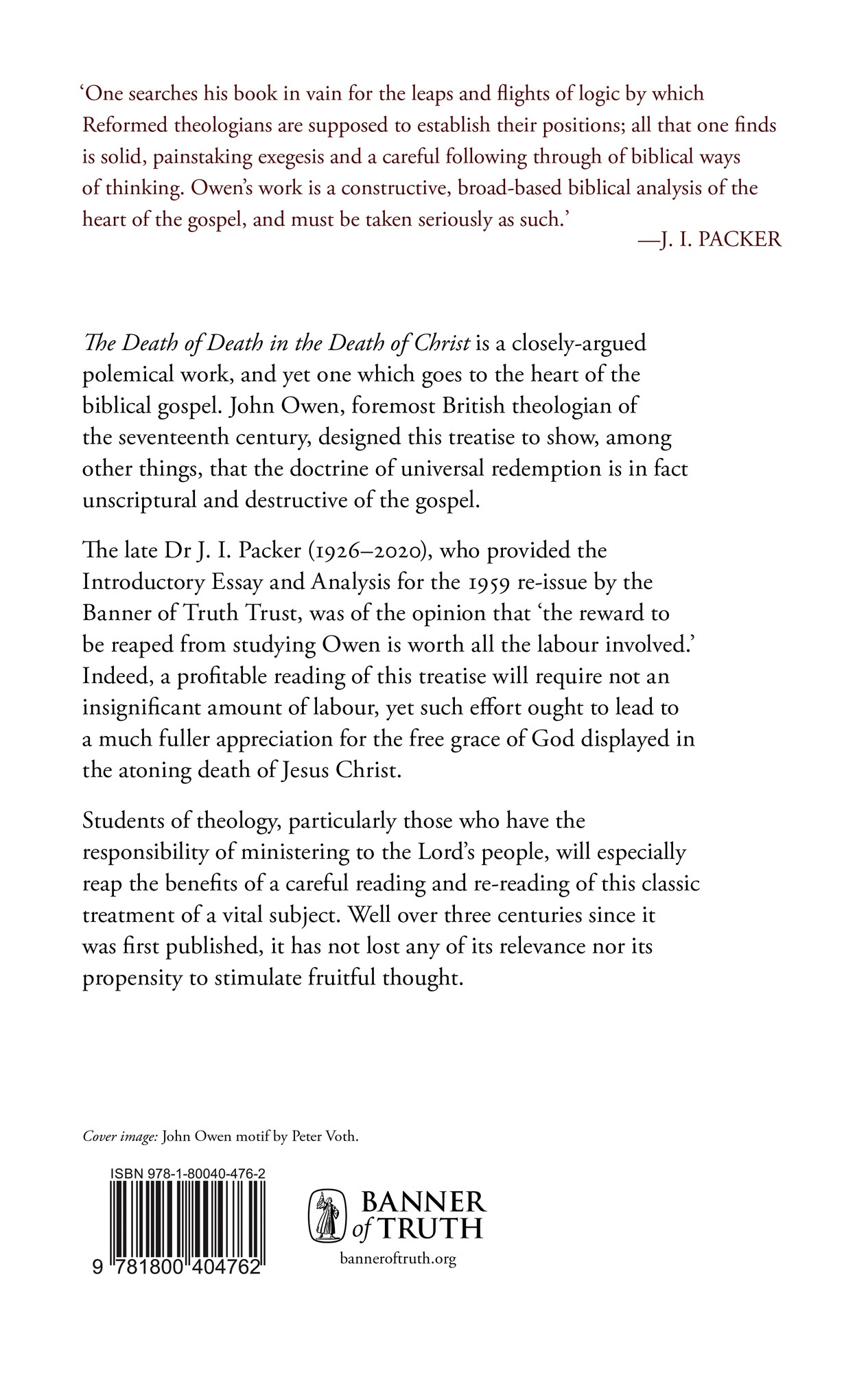
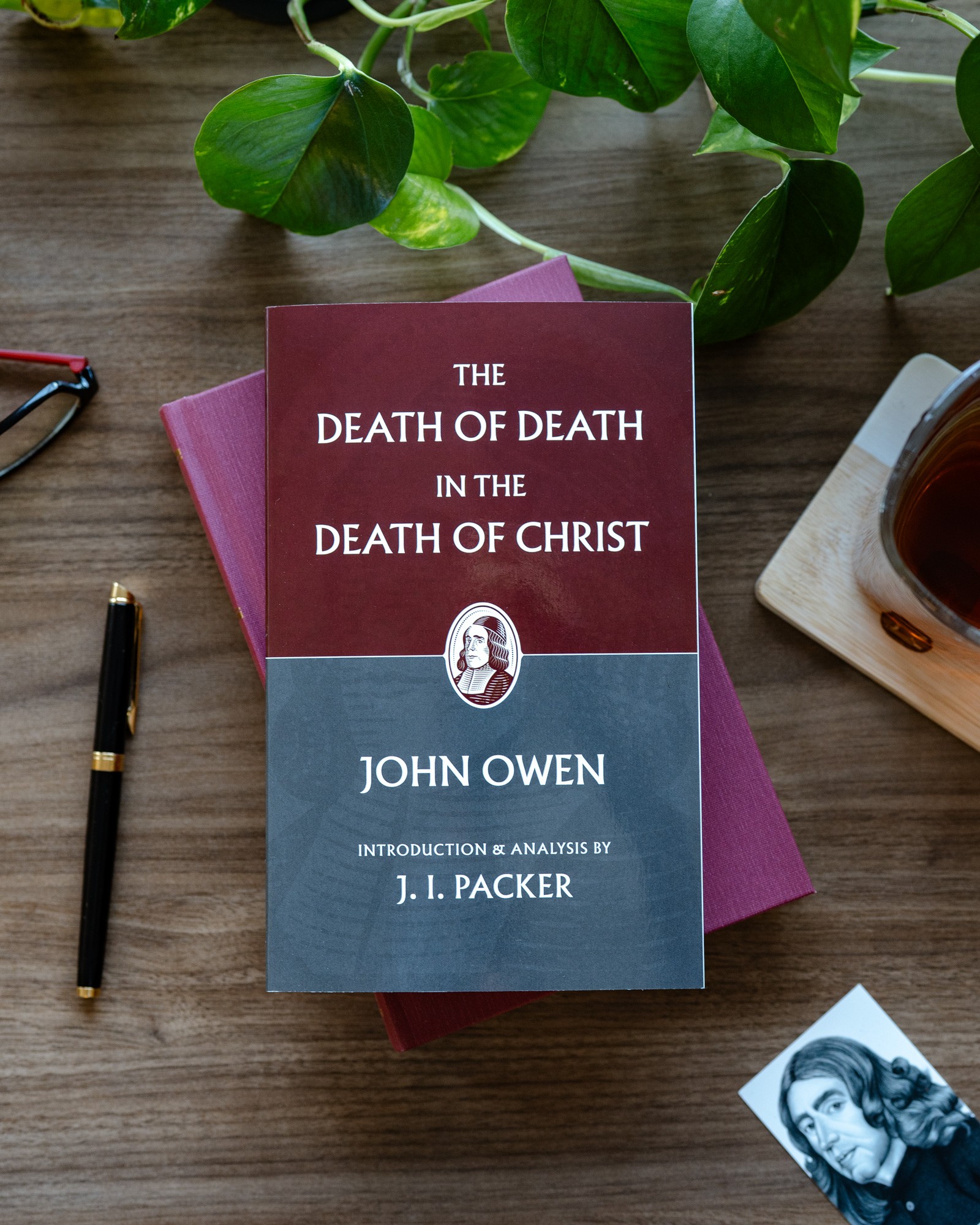
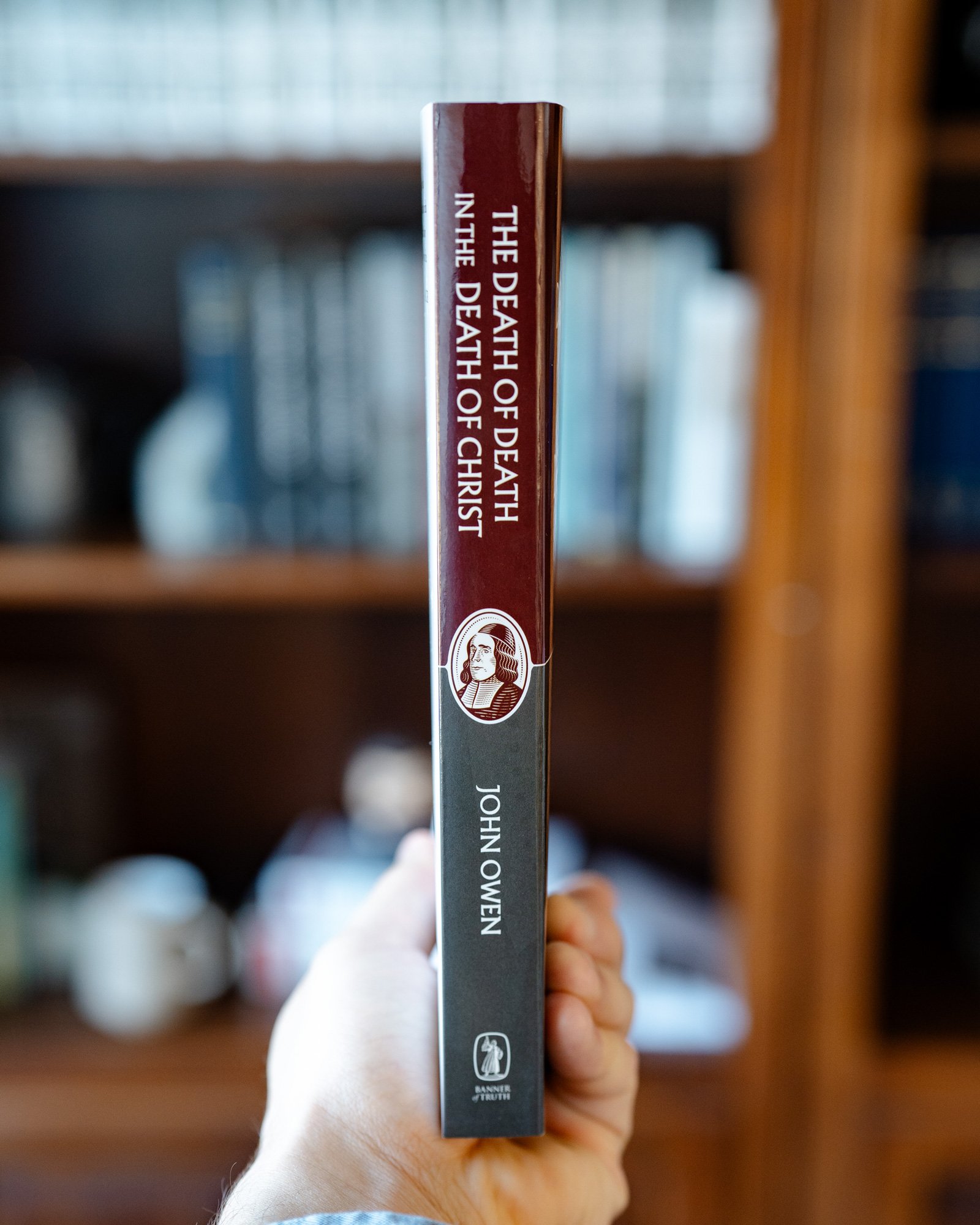
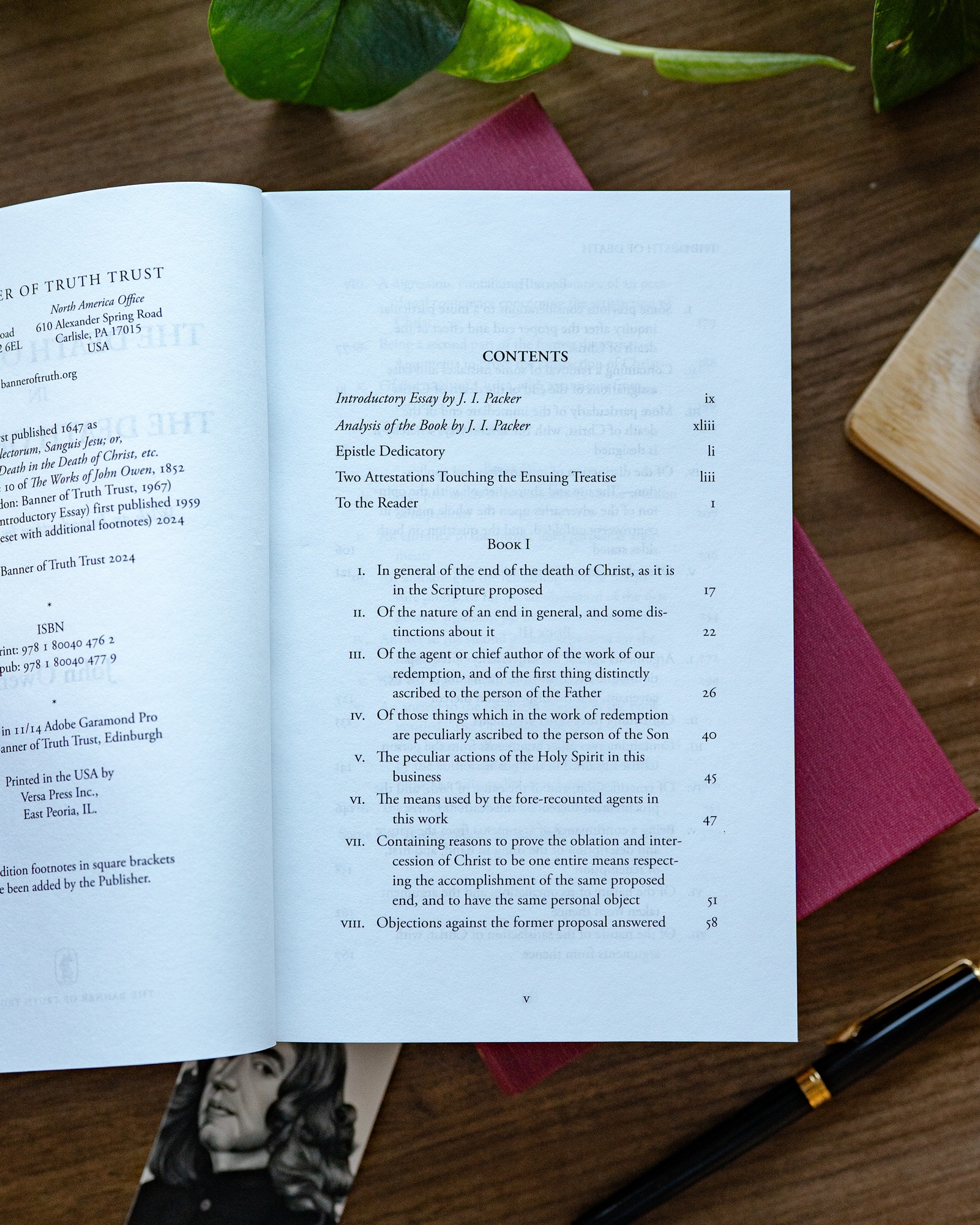
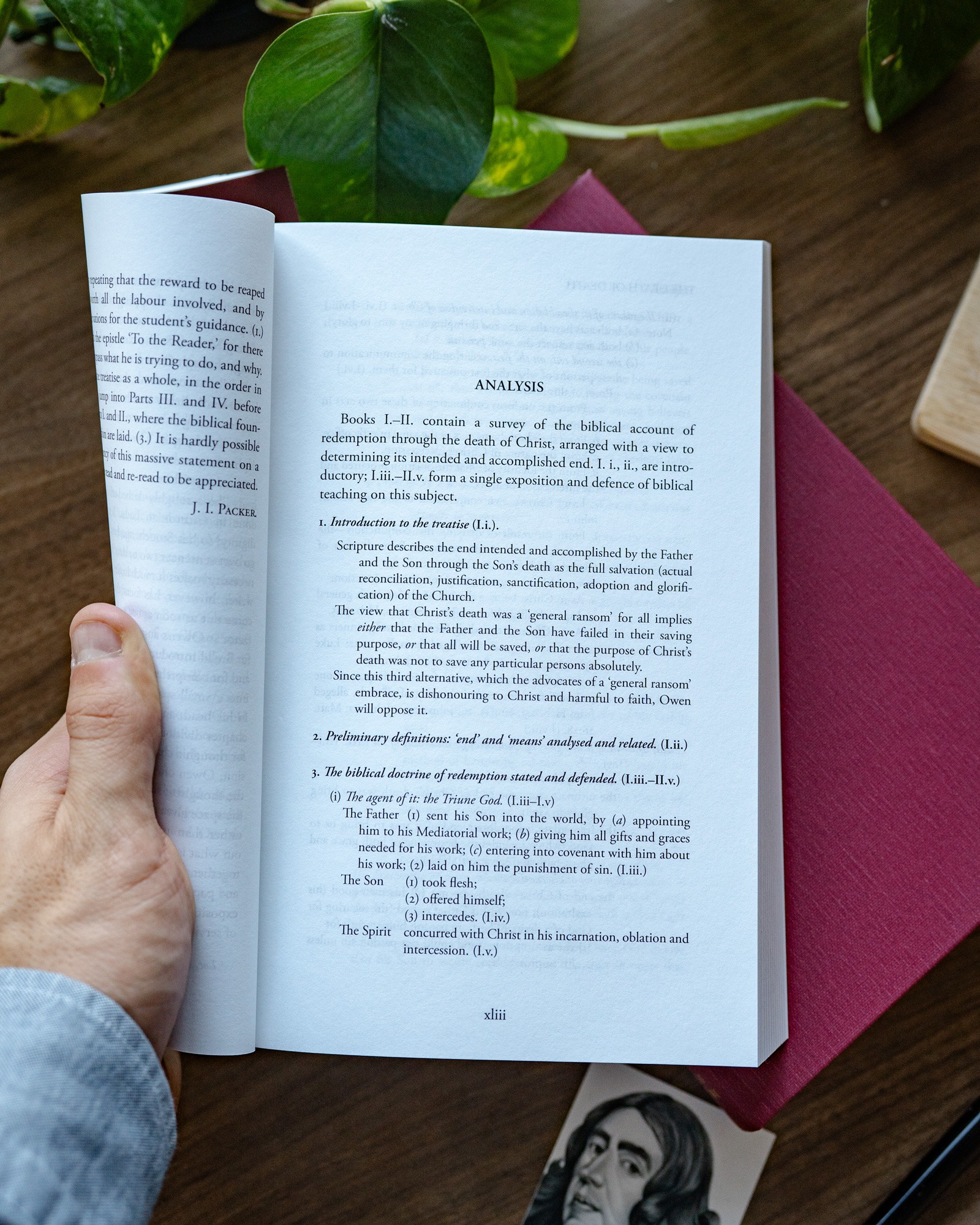
Ellison Marshall –
It took me 4 months to read this book. Every morning before work I read. Owen so clearly explains what Christ actually did on the cross; that He actually, purposely, and eternally secured salvation. Christ did not “offer a wonderful plan for our lives” as some say, but He became our substitute, paying for our sins (whose names were written in the Lamb’s Book of Life before the foundation of the world). How can we respond to such a wondrous gift; a gift that no man ever asked for. Owen precisely articulates our “creation” as new creatures and that no one can birth themselves into the kingdom of God. The “work” of salvation is Christ’s from beginning to end. EVERY Christian should read this book in order to understand the working of God, using the same power to raise us up in salvation that He used to raise up Christ. Glory be to His name!